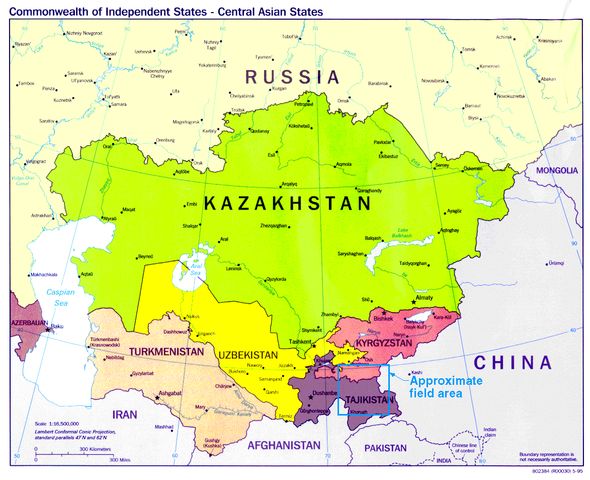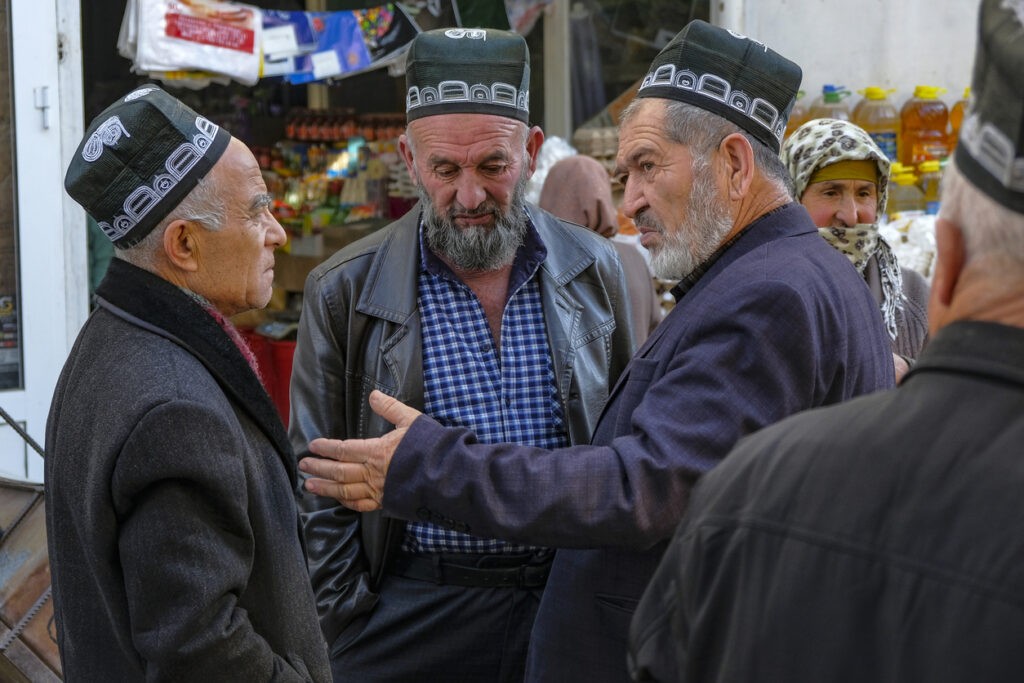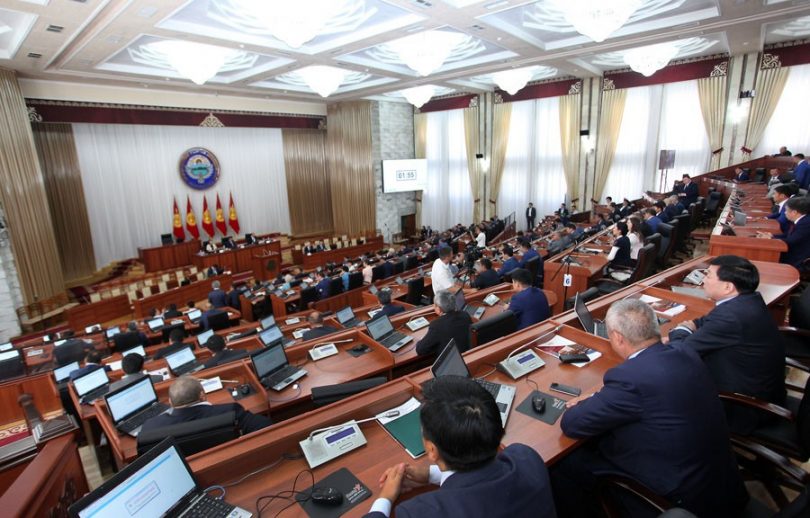LONDON (TCA) — Lebanon, former Yugoslavia, Africa and Latin America where large-scale civil armed conflicts took place generate mobs and mobsters. While in Kazakhstan and Kyrgyzstan such conflicts have been avoided, Tajikistan’s leading crime chiefs seem to have come very close indeed to sharing power with legitimate authorities while Uzbekistan seems to be balancing on the edge. Both post-Soviet republics appear to be in need of a national consolidation of public support for legitimacy, rather than letting criminal gangs control the economy first and possibly the state itself later.
The case of Turkmenistan is veiled in absolute secrecy, the other two post-Soviet frontline republics with war-torn Afghanistan, namely Uzbekistan and Tajikistan, have witnessed the names and surnames of their respective leading chief mobsters seen exposed in high profiles. Neither of them, in contrast to situations in Europe and the Americas but not unlike some Subsaharian states, has managed to separate the goats from the sheep. As a result, it is extremely hard to draw any line between the “regular” economy and the “shadow” economy. In both countries, alleged capos maintain their business in broad daylight and their relations with some of the higher official echelons look quite cozy. The list of top figureheads in both countries engaged in traffic and trade of narcotics, weapons, human beings and stolen goods as well as extortion and racketeering, has been known for quite a long time. If they are not marginalised, prosecuted and judged they may soon hand their business over to a new generation, more anonymous, more violent and more destructive, and even more difficult to isolate and eradicate.
One strategic advantage
Among the Uzbek celebrity figures Alimzhan Tokhtakhounov, also known as Taivanchik and Alik, the notorious Uzbek mobster who ranked third among Forbes’ most-wanted in the world (referring to Interpol) after Osama Bin Laden and the Mexican drugs baron Joaquin Guzman Loera by the end of the first decade of the new century. Tokhtakhounov was born on January 1, 1949, in Tashkent, where he spent his childhood, his youth and most of his mid-life. He migrated to Europe in 1989 after which he spent most of his time in Germany, France and Italy. In 2003 he returned to Moscow. Meanwhile, he had built up close relations with Russia’s leading mobsters such as Mikhail Zhivilo and Vyacheslav Ivankov (Yaponchik). According to some, Yaponchik named Tokhtakhunov his “eyes in Europe”.
Another name high on the Uzbek list is that of Gafur-Arslanbek Rakhimov, who together with Kyrgyzstan’s chief mobster Kamchybek Kolbayev is said to control the bulk of the drugs transit traffic from Afghanistan into Russia and beyond. Unsurprisingly, the pair also maintains close links with Russia’s organised crime syndicate “Twenty Brothers” as well as the ethnic Uzbek criminal communities in Afghanistan. They all share one strategic advantage: not just populations are afraid of them but state authorities as well.
A full-scale civil war
The third “pillar” of the Uzbek criminal community consists of Salim Abduvaliev and his brother Rakhim Abduvaliev, who are suspected of running the major national and international networks of child labour and prostitution, as well as poaching, counterfeit and hired gunmen. All groups are engaged in arms traffic and maintain “private armies” to maintain control over their territories, as well as money laundering circuits involving national and international banks and other financial businesses.
Yet, the situation in Uzbekistan remains fundamentally different from that in neighbouring Tajikistan, where, not unlike Afghanistan, a full-scale civil war opposing the inheritors of Soviet power with “Islamic” armed fractions most of which received their life support from the Arabian Peninsula through Afghanistan, lasted from 1992 till 1997. At that point, both parties clinched a compromise, realising that neither of them could win and biding their time each. Virtually overnight, former “terrorists” and “extremists” became respectful-looking high officials without, however, abandoning their former resources of illegal funding.
Warlords in peacetime
It was therefore that an attempt by the government, under growing international pressure, to crack down on organised crime was doomed to reach its final goal. “Operation Law and Order began in Dushanbe on March 18 2000,” a report posted on April 26 the same year by Asia-Plus was to relate. “During the first 10 days of the operation, authorities confiscated heavy weapons, automobiles and arrested dozens of suspects. Interior Ministry officials were quick to hail the operation as a success, saying it had significantly reduced criminal activity.”
To complicate matters, the “loyalist” commanders during the war had become warlords in peacetime as well, taking after the example of their brethren in northern Afghanistan. “Over time, six pro-government commanders established themselves in Dushanbe as forces to be reckoned with,” the report quoted above read further down. “They are: Gen. Suhrob Kasymov, commander of an elite brigade of Interior Ministry troops, who controls the larger part of Dushanbe; Gen. Gaffor Mirzoyev, who commands the Presidential Guard; the brothers Faizali and Bakhtiyor Langariyev, who lead a special rapid development force, and Saidsho Shamolov and Kurbon Cholov, who command special border patrol formations. All of the above-named commanders were born in various districts of Kulob region.”
‘Currently doing business’
And the story remains far from over. On October 6 last year, Asia-Plus reported that Bakhtiyor Langariyev — whose brother Suhrob was sentenced to life in prison in 2009 on charges of drugs and arms trafficking — had returned to Tajikistan after a seven-year absence. Around the time of his departure, which coincided with the period of Suhrob’s arrest in the city of Kulyab, Bakhtiyor Langariyev was head of the Dushanbe anti-organised crime department. Another unnamed source cited by Asia-Plus suggested that yet another Langariyev brother, Faizali, could be named deputy defense minister and that Bakhtiyor could take up a position as head of a defense ministry special battalion. The website cites people close to 44-year old Bakhtiyor Langariyev as saying he is “currently doing business” in other former Soviet states and in the United Arab Emirates. In other words: both Uzbekistan and (to worse proportions) Tajikistan find themselves in situations where traditional measures carried out by police and other armed forces are no longer the answer, and new, more structural policies are in demand.
* This is the second part of a series of two articles. The first one, entitled Organized crime in Kazakhstan and Kyrgyzstan, was published on 5 March 2016








